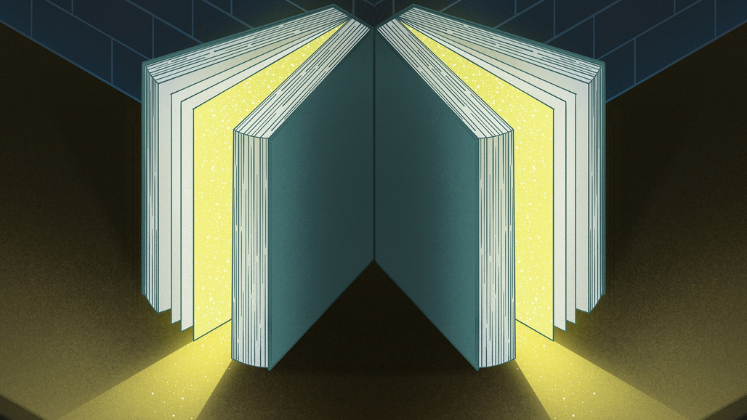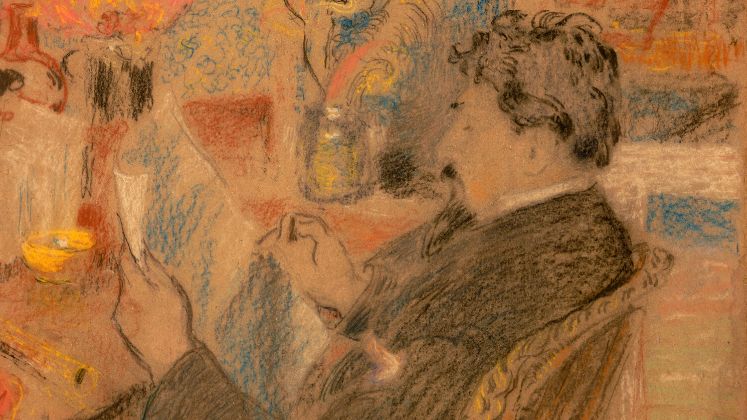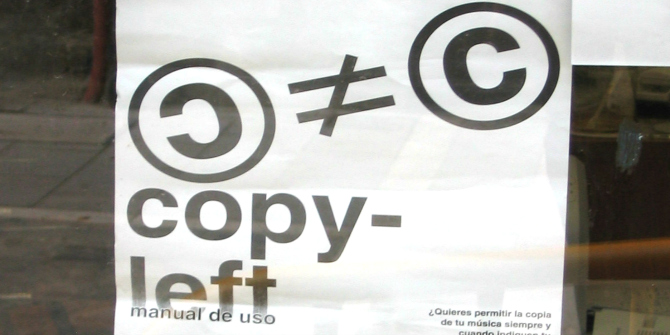

In recent years, many academics have expressed their dissatisfaction or disillusionment with academia. Some have tired of the “publish or perish” game, while others have grown bored of traditional practices of academic writing and conference attendance. To address this problem, François-Xavier de Vaujany and Laetitia Vitaud present a new research method: Open Walked Event-based Experimentations. Key to OWEE is spending time among people in third-places, keeping bodies and emotions active, walking and talking, breaking down barriers and creating new synergies. Intended to be open to all stakeholders, OWEE emphasises creativity, experimentation, and improvisation.
Between 2015 and 2017, Research Group on Collaborative Spaces (RGCS), an independent network of academics, organised more than 80 events worldwide, including three learning expeditions. RGCS aims to explore third-places (i.e. spaces and times between home and work) and collaborative communities, particularly of coworkers, makers, and hackers. Collaborative communities are seen as windows to understand new work practices (mobile, remote, digital, collaborative, entrepreneurial) and levers or muses that might transform our own academic practices.
All events organised by the network (in particular those based on learning expeditions) have converged into a new research method presented here: Open Walked Event-based Experimentations (OWEE). This method aims to overcome various dichotomies (such as knowledge-building/knowledge-diffusing; teacher/researcher; academic/practitioner; academic/politician), make a bigger impact, and offer deeper connectivity in time and space for research and the events organised by researchers.
What is the OWEE method: an emotion?
Over the last three years, throughout various events and experimentations, we’ve been shocked to discover how many academics were bored with their work and disillusioned with academia. Some grew sick and tired of the “publish or perish” game. Others were dissatisfied even while academically successful.
 Image credit: Final Highline Expansion by John Gillespie. This work is licensed under a CC BY-SA 2.0 license.
Image credit: Final Highline Expansion by John Gillespie. This work is licensed under a CC BY-SA 2.0 license.
They came to our events simply to “have fun”! They longed for the use of new media to write, produce, and assemble academic production – something different to the more traditional academic journals. They embarked on a journey without knowing the destination and thoroughly enjoyed themselves in the process. Many of us began to whether scientific writing couldn’t also leave room for new rhetorics, different writing styles, and the expression of emotions (see de Vaujany, Walsh and Mitev, 2011; Shanahan, 2015). Of course traditional modes of writing continue to be favoured by numerous academics and still have a valuable role to play in the academic world. But more of us now seek to explore new ways of writing that allow for emotional tones and styles. Some journals have started to publish pieces that reflect this trend.
Furthermore, bodies and emotions are critical to our open experimentations. For example, the conversations people have while walking are fundamentally different from those they have sitting indoors. We have walked together so much; spending lots of time in third-places in Berlin, Barcelona, London, Tokyo, etc., continuing on our conversations while doing something with our hands, dropping all formality, feeding on the richness of the context, and analysing it together.
Walking and talking is a powerful combination. It effectively mixes people. You can avoid someone in a “safe” seminar room or event convention centre, but in a crowded metro, bus or tramway, you may end up speaking to whoever just happens to be near you. When there is a large diversity of stakeholders – academics, entrepreneurs, representatives of public institutions, journalists – walking works as a powerful engine to break down barriers and create new synergies.
All this has resulted in the OWEE method we are continually refining. It combines ethnography with more transformative, action-oriented research designs. Deeply grounded in phenomenology, this research protocol gives a central role to our embodied perceptions. The OWEE approach can be described by means of the four dimensions included in the following table:
 Table 1: Description of the OWEE methods around its four key dimensions
Table 1: Description of the OWEE methods around its four key dimensions
First empirical results based on the implementation of the OWEE method
We want to outline four key results based on the first two implementations of the OWEE method in Berlin in March 2017 (more about which in a forthcoming article), and in Tokyo in June 2017.
The use of Twitter for a new scientific “meta-writing”
During our events, particularly our learning expeditions, we tried to be reflexive and experimental. We found that live tweets or sequences of tweets can be useful “meta-texts”, combining situations, people, organisations, and publications. When published in the flow of an event, tweets create a live narrative that can extend the event in time and space (see our live tweets in Tokyo), and connect it to other, past, ongoing or future events (e.g. by mentioning them in a tweet).
Unlike traditional article publishing, Twitter provides an emotional, temporal network that integrates source material (research articles, books, pictures, etc.), makes it more meaningful, and gives it new life through live tweets. It demands creative new ways of writing that are reminiscent of visual arts techniques such as assemblage and collage, whereby found objects are used to create something new that transcends them.
Other social media involved in sharing live scientific knowledge
Other social media, such as Facebook, YouTube, or Instagram, can contribute to making events more indelible and unforgettable as they generate emotions. Numerous studies have shown that the longest-lasting memories are linked to emotions (e.g. Rapaport, 1942); they are recalled with more clarity and detail, which is likely to increase the quality of future publications.
In the context of our learning expeditions, Whatsapp, Facebook, emails, and even text messages play a big role in the process; they constitute modern-day rituals that cement all participants together. They make the group more horizontal and involved in sharing whatever knowledge has been acquired. Increased engagement and horizontal communication can turn participants into active “ambassadors”, keen to spread the word.
Beyond scientific writing: learning expeditions as community-builders
Increasingly RGCS events tend to be mainly about team/community building. Our learning expeditions have provided plenty of opportunities to demonstrate this. There is no exaggerating the impact the community had on the RGCS network and its production. The numerous emails, messages, and posts using the #visualizinghacking2017 hashtag are an excellent case in point.
Storytelling and community-managing are increasingly necessary to give life to scientific writing and extend its reach and impact. Topics and research do still matter, of course, but style and delivery tend to become equally important. Incidentally, some of the best storytelling is often quite succinct, not a common trait of scientific writing.
For a necessary pivot in space and time for learning expeditions… a major annual “unconference”
“Unconferences” are participant-driven events quite different to conventional conferences with their fees, sponsored presentations, and top-down organisation. That is what our first RGCS international symposium in Paris last year was all about. We strived to return the word “symposium” to its original meaning (in ancient Greece it was a part of a banquet conducive to debate and creativity).
“Work and Workplace Transformations: Between Communities, Doing, and Entrepreneurship”, the 2016 RGCS symposium, was a big unconference designed to provide the whole group and its undertakings with a tone, spirit, and dynamic. It aimed to enhance, order, and lever all of our events and various experimentations. Naturally we hope our next symposium will achieve all that, and more.
Many thanks to Tadashi Uda, Tomazaku Abe, David Vallat, Anouck Adrot, and Charles-Baptiste Gérard for joining this crazy adventure. And to Aurore Dandoy for blogging on our website! Many thanks to all those who supported it from afar: Amadou Lo, Julie Fabbri, Stéphanie Fargeot, Serge Bolidum, Aurore Dandoy, Marie Hasbi, Constance Garnier, Albane Grandazzi, Stefan Haefliger, Viviane Sergi, Anna Glaser, and many others. There are so many things I will never forget (e.g. the exoskeleton experience)!
About the authors
François-Xavier de Vaujany is a professor of Management & Organization Studies at Université Paris-Dauphine, PSL. He is particularly interested in new work practices (e.g. digital work, remote work, mobile work, coworking, distributed work, slashers, digital nomads, hacking, etc.), how they emerge, how they are legitimised in organisations and society, and how academics themselves can experiment with new work practices. In late 2014 he set up an international academic network (RGCS: the Research Group on Collaborative Spaces) about collaborative communities and collaborative movements involved in new work practices (in particular coworkers, makers, hackers). This network organizes events all over the world, in particular learning expeditions and other experimentations mixing academics, entrepreneurs, managers, activists, journalists, and politicians. Those are opportunities for walked, reflexive, collective narratives and events which are connected to each other.
Laetitia Vitaud is a speaker, writer, and researcher, specialising in the future of work, organisations, and consumption. She works with several organisations, including WillBe Group, a consultancy, and the Consumer Goods Forum. She is a lecturer at Sciences-Po Paris and Université Paris Dauphine, and, with Nicolas Colin, authored the book, Faut-il avoir peur du numérique? (Should you be afraid of digital ?) (Armand Colin, 2016). She lives in London.








21 Comments